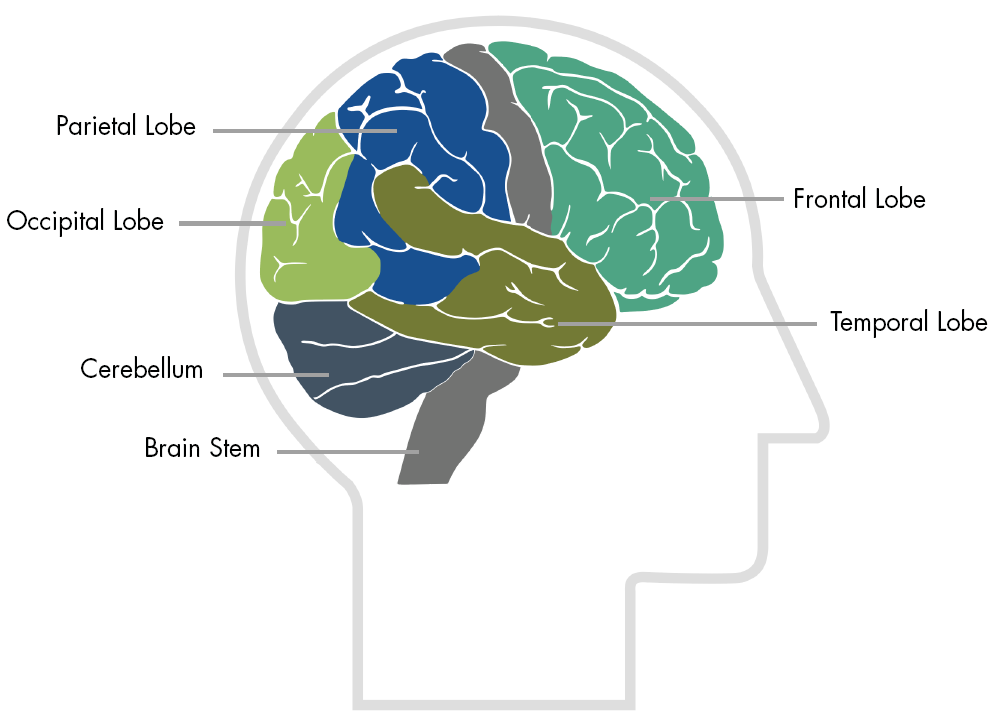Understanding Frontal Lobe Brain Injury

There are over 5 million people in American today who are living with the permanent effects of a traumatic brain injury. From a minor nuisance to permanent disablement, a TBI can result in a wide range of effects that challenge a person’s ability to think clearly, communicate adequately, and connect well with the people and world around them.
Your Brain Isn’t Defenseless
While 5 million is certainly a large number, it only makes up about 2 percent of the population of the United States, and that’s a rather small number. This could indicate that our body is operating with some built-in defenses that help protect the brain.
Anyone who’s ever knocked heads with another person, especially a fast-moving child, can attest that skulls are hard, very hard. This barrier is strong, but there is a second layer of protective cushioning – the layers of tissue known as the meninges, which keep the brain from floating in the skull. A traumatic brain injury can occur, however, if the meninges become torn or infected because of a violent motion – like a car accident, fall, or collision with another person – or disease.
The Job of the Frontal Lobe
Closed head injuries are not uncommon in auto accidents. A concussion can happen when the body is so terribly jostled that the brain collides with the inside of the skull. These closed injuries may damage the nerves in the brain, negatively affecting the signals that they typically produce.
The brain’s largest lobe is the frontal lobe, and when a TBI occurs in this area, voluntary movement, conscious thought, and even personality can be affected. Unable to find just the right word to say? This is the part of the brain that is letting you down at that moment. Attention span, organization, and judgment can all be impacted if the frontal lobe is damaged – all those neurological tests are important for a reason. A brain injury specialist needs to determine just what part of the brain has been impacted by the TBI.
Frontal lobe trauma can also result in a lack of motivation and an inability to control moods and emotions. Risky behaviors and rash actions may be the result. A TBI sufferer will also be tested to rate motor function, balance, coordination, comprehension, communication, and speech.
Frontal Lobe TBI and Auto Accidents
If you are in an auto accident or have a fall, a frontal lobe TBI could be the result – these are some of the most common causes of frontal lobe injury. Brain injuries cannot be cured, but they can be treated and a person can be rehabilitated to strengthen the skills that were once present but are now lacking, and to compensate for skills that have been completely lost.
Because it is so difficult to prove a TBI after a car accident, it is critical to have the proper medical treatment immediately following a collision, and to retain an attorney who is an expert in proving traumatic brain injuries as the result of an auto accident.
About the author: David Christensen is an experienced auto accident attorney with Christensen Law in Southfield, Michigan. He specializes in helping clients suffering from traumatic brain injuries collect benefits from their insurance companies.